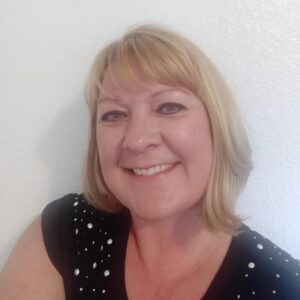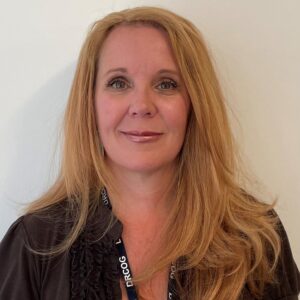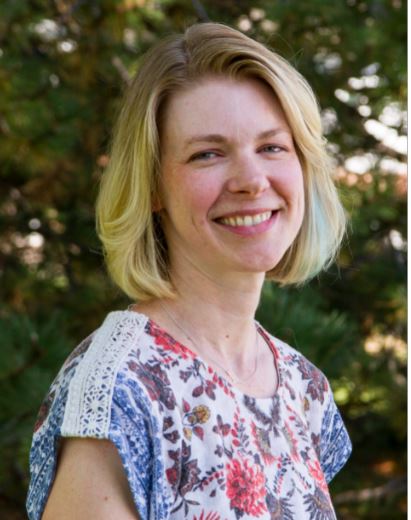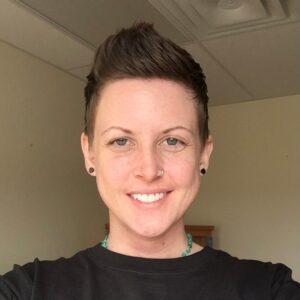Ombudsman Spotlight Archives
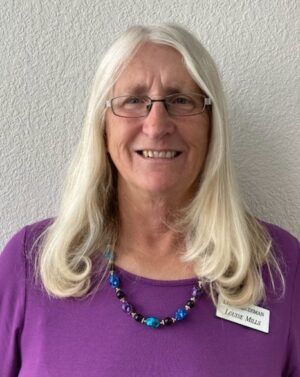
How long have you been an ombudsman?
This year will mark my 22nd year and I still enjoy being the Regional Long-Term Care Ombudsman for region five.
What made you want to become an ombudsman?
When I became an ombudsman, I had no idea what an ombudsman was or what they did. I applied
for a job at our local council of government and was turned down. A couple months later they called me
back and asked me to come in because the job was opened again, but they had another job too, if I was
interested. The people who interviewed me told me that they had observed me in the community
working with older adults and felt I would be a good ombudsman.
What has surprised you the most in being an ombudsman?
What surprised me most about being an ombudsman was when residents tell me they see me more
than they see their families. I was brought up in a family where we took care of each other. At times
this would become overwhelming but at the end of the day we were still family. My journey to respect
elders started at a young age. In my early teens, I stayed with my grandparents in the summer and later
stayed with them in their home when they were in hospice.
What do you most enjoy about being an ombudsman?
I enjoy being an ombudsman because it gives me a glimpse of residents’ lives. I feel you have to earn
their trust and respect before they will open up to you with problems or concerns. Making a difference
in the residents’ lives and knowing that quality of life is just as important as quantity of life. Sometimes
the smallest thing will make a world of difference in their lives.
Tell us the top 2 or 3 positive changes that you are working to achieve in the communities that you serve.
In my community, I serve on a variety of committees as a member. This allows me to know contacts
and resources so residents who want to go out in the community again, will have the chance to thrive,
not fail. I try to attend the resident’s community functions when possible so families will know who I am
and what my role is. It is very important to educate communities on services in and out of long-term
care. Nursing homes and Assisted Living Residences are a place to live in communities and are not
institutions.
Do you have a favorite quote that inspires you in your work as an advocate?
“The only way to do great work is to love what you do” Steve Jobs
______________________________________________________________________________________
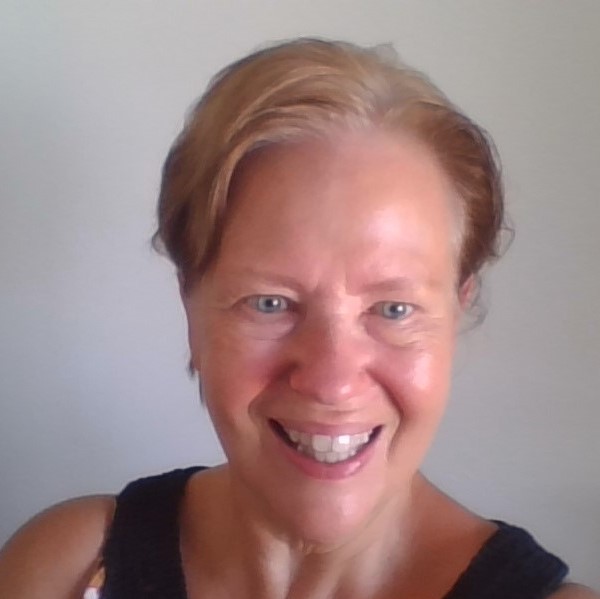
How long have you been an ombudsman?
I have been an Ombudsman for a little over 10 years.
What made you want to become an ombudsman?
I didn’t know what an Ombudsman was until I began working at the Area Agency on Aging. I had several different positions at the AAA and during that time I became familiar with the Ombudsman team and the work they were doing. I knew that my skills, empathy and determination would be a good match. As I became more familiar with the people living in long-term care facilities and the program, I knew I had made the right decision.
What has surprised you the most in being an ombudsman?
The lack of care that face residents daily and their fear of retaliation if they speak out regarding their concerns. It takes a lot of patience at times to develop trust with a resident so that they can believe the Ombudsman will stand by them as they move forward in getting the care they desire and deserve. I was also surprised how little the public knows of the plight of the individuals that live in long term care.
What do you most enjoy about being an ombudsman?
That would be the residents! I have met some incredible people who have done some amazing things in their lives. The older residents have walked through so many changes in the world and to hear firsthand what those experiences were like is very impacting.
Many residents don’t understand their rights. Educating the residents on their rights and witnessing them becoming empowered and use those rights to make changes to get the care they desire, and deserve, is a joy.
Tell us the top 2 or 3 positive changes that you are working to achieve in the communities that you serve.
Last year we took World Edler Abuse Awareness Day on the road and had presentations in some of our smaller communities about elder abuse both in the community and in long term care. Public knowledge of the issues facing residents can help move them forward to speak out and vote for changes in long-term care.
Educating residents on their rights and helping them to be their own advocates when they feel comfortable doing so is something the team is always stiving for. We do this by attending resident and family councils, handing out information during our routine visits and giving cards that residents can hang on their doors that inform staff of residents’ rights as they enter the room. Every conversation we have with the public, staff, family and residents is an opportunity to provide education on the rights of residents in long-term care.
Do you have a favorite quote that inspires you in your work as an advocate?
There are many great quotes that speak to me at different times.
Right now, I am remembering this:
“We must always take sides. Neutrality helps the oppressor, never the victim. Silence encourages the tormentor, never the tormented.” ― Elie Wiesel

How long have you been an ombudsman? I have been an Ombudsman with the Region 10-Area Agency on Aging since June of 2014 – nine years.
What made you want to become an ombudsman?
Throughout my career I have always enjoyed working with older adults. I was exposed to the Ombudsman program through my work, first as a floor nurse and then as the social services director in a skilled nursing facility. I felt that I had the affinity to be a good representative of the program and my years working in long term care had provided me with an understanding of the complexities surrounding life in a nursing home.
What surprised you most about being an ombudsman?
I have introduced the program to hundreds of patients and their families over the years. In that time, I’ve met only seven individuals who knew what an Ombudsman is and does. They included people previously assisted by the program, a retired nurse and a professor of social work. There is much education to be done to bring about an awareness of this vital program.
What do you most enjoy about being an ombudsman?
The wide variety of concerns that I’m presented with each day. I never know what issues I will be called on to help residents represent and solve. I enjoy assisting individuals and supporting their goals through resources that they weren’t aware of. I’m always impressed by the wealth of knowledge, grace, and strength of the people I am privileged to assist. We are all different and yet the same. Each of us values our dignity, autonomy and right to self-determination. Each of us has a lifetime of experiences that make us unique in our own right.
Tell us 2-3 positive changes you are working to achieve in the communities that you serve.
My effort to provide education and information about the Ombudsman program will be ongoing. It is vitally important that residents are aware of their rights and understand that they can make their problems known without fear of reprisal. Promoting active resident and family councils allows residents to voice needs and concerns which can affect transformation systemically in their home and quality of life for all. Individualized person-centered care is the unparalleled means for people in long term care to thrive and achieve their best life.
Do you have a favorite quote that inspires you in your work as an advocate?
“Make a gift of your life and lift all mankind by being kind, considerate, forgiving and compassionate at all times, in all places, and under all conditions, with everyone as well as yourself. This is the greatest gift anyone can give.” David Hawkins
How long have you been an ombudsman? I started working as an ombudsman at the Boulder County Area Agency on Aging in October of 2009.
What made you want to become an ombudsman?
I have always worked with older adults. I started my career doing case management for elderly, blind and disabled Medicaid clients. After working as a discharge planner at a hospital and as the Administrator of an Assisted Living, I found my place as an ombudsman. While it was an adjustment to work with residents on achieving their expressed interest rather than best interest as in my previous work, it was also a natural fit and quickly became work that I find critical to the quality of life for residents of assisted livings and nursing homes. The work of LTC ombudsmen in the lives of LTC residents and their loved ones has only become more important over the years as the aging population increases and the LTC world becomes more visible, I am glad to be a part of it.
What surprised you most about being an ombudsman?
We sometimes find ourselves advocating for things that we may never have thought we would support. But when you are really listening to a person who has had lost so much and has so little control over their lives, those things become all the more important.
What do you most enjoy about being an ombudsman?
What can be challenging work where there seem to be few victories, the times when we accomplish what a resident wants feels really good. Even when we can’t get everything resolved, knowing that residents feel supported is priceless.
Tell us 2-3 positive changes you are working to achieve in the communities that you serve.
Equal attention paid to the day to day needs of residents-their priorities, as to infection control (that became the #1 priority during COVID) and the goals of the LTC homes.
Improved communication from LTC homes from initial tours and admission through to care conferences and response to concerns.
Appropriate discharge – planning, communication, etc.
Do you have a favorite quote that inspires you in your work as an advocate?
I have a lot of quotes so it’s hard to choose just one, probably the things that really inspire me are things that residents say.
How long have you been an ombudsman? 23 years this May.
What made you want to become an ombudsman?
I was a volunteer ombudsman while I was in college. My degree is in Gerontology and I started volunteering for a practicum that I was required to complete. I was good at visiting with the residents, but not so good at trying to figure out how to advocate for them. I stopped volunteering after I graduated and started working at a SNF as an activity director for about 3 years. Ultimately, I realized that I enjoyed the ombudsman program much more than working in a facility. At first I still felt inept when trying to advocate for residents, but I eventually developed my own style of advocacy. Although being an activity director was not a good fit for me, I think working in a facility prior to becoming a paid staff ombudsman was very helpful.
What surprised you most about being an ombudsman?
That no 2 cases are alike.
The amount of knowledge you acquire when working on issues.
How quickly things change in facilities…staff turnover, residents relocating or passing away, etc.
What do you most enjoy about being an ombudsman?
Even though I am a seasoned ombudsman I don’t always know the answer. I enjoy that I am often learning something new. I feel like my time spent as an ombudsman has had a positive impact on my personal growth throughout the years.
Tell us 2-3 positive changes you are working to achieve in the communities that you serve.
Since we re-entered after COVID, I feel like we have had to start with the basics. This includes educating residents and staff about the ombudsman program and residents’ rights.
One of our main focuses in Weld has been ensuring that residents know their rights and how to contact their local ombudsman program.
Do you have a favorite quote that inspires you in your work as an advocate?
Desiree Rodriguez, local ombudsman, gave me an awesome ombudsman mug for Christmas and I think it covers what we are often thinking in our role…”Being an ombudsman is easy. It’s like riding a bike. Except the bike is on fire, you’re on fire, everything is on fire.”
How long have you been an ombudsman? 20 years
What made you want to become an ombudsman?
If I’m being honest, I don’t think I knew that I wanted to be an Ombudsman. I had been working as a case manager trying to help a client in an assisted living home keep her dog, the ALR would not work with me and were insistent that this resident give up her dog. The resident was heartbroken.
I reached out to the Ombudsman and within two days the Ombudsman was able to get a plan in place for the ALR to work with the resident and keep her dog. I was so impressed with the ability the Ombudsman had to impact this woman’s quality of life in such a meaningful way, I knew then that it was a career I wanted to know more about. Twenty years later, here I am.
What surprised you most about being an ombudsman?
How hard it is. I never suspected that advocating on behalf of a resident to have the most basic of rights would be something met with some much resistance. Just because there are no regulations that say “do the right thing” doesn’t mean that not doing the right thing is acceptable.
What do you most enjoy about being an ombudsman?
The residents. As much hard as we see in a day, we also get to see so much good, and funny, and “you can’t make this stuff up”. There is never a dull day, it truly never gets boring.
Tell us 2-3 positive changes you are working to achieve in the communities that you serve.
Much of the work I have done over the years is from regulatory changes that provide residents with greater protection and rights. I helped do a total overhaul of the ALR regulations, testifying before the board of health numerous times. I am now involved with new rule revisions directed by legislation from last year as it relates to Alzheimer’s training to NH and ALR staff and more rights for ALR residents facing discharge.
Do you have a favorite quote that inspires you in your work as an advocate?
“We are all faced with a series of great opportunities brilliantly disguised as impossible situations.” — Chuck Swindoll

How long have you been an ombudsman?
7 years
What made you want to become an ombudsman?
I wanted to work and connect with residents more directly, so I applied for the long-term care ombudsman position in Colorado. I have enjoyed my role as the Regional Long-Term Care Ombudsman in the Upper Arkansas region. I also enjoy other aspects of my work such as being an Eden Alterative Educator in order to train people on the Eden philosophy and culture change approach on person centered care.
What surprised you most about being an ombudsman?
I think what surprised me the most was learning about the Long-Term Care Ombudsman Program federal laws on confidentiality.
What do you most enjoy about being an ombudsman?
I enjoy having the opportunity to share my knowledge with the certified ombudsmen I work with in my region. Also, I enjoy sharing the knowledge and experience that I have gained through the diversity of my training over the years. Previously, I worked in long-term care on the provider side and now working as an ombudsman helps me to have a well-rounded perspective. I enjoy taking the certified ombudsmen in my region to some of the care communities that have the most diverse populations, including those that house residents who are living with complex care needs and residents who identify as LGBTQ and transgender. It is important to me to stress that the populations we serve are very diverse and not isolated to only serving and advocating for older people. We also serve a wide variety of cultures and ethnicities and need to be prepared to advocate for all the people we serve. It is gratifying for me to help certified ombudsmen to grow and see other perspectives that they may not have already considered.
Tell us 2-3 positive changes you are working to achieve in the communities that you serve.
Some positive changes include going to the community, legislative and other meetings to bring awareness of the diversity of the long-term care population now and discussing how it is rapidly changing.
I would like to see additional changes in the future such as training for providers that focuses on serving diverse populations and promote rights of all residents including LGBTQ, transgender, racially and culturally diverse populations.
Do you have a favorite quote that inspires you in your work as an advocate?
“Everyone should be quick to listen, slow to speak and slow to become angry.” ~ James 1:19 NIV
How long have you been an ombudsman? 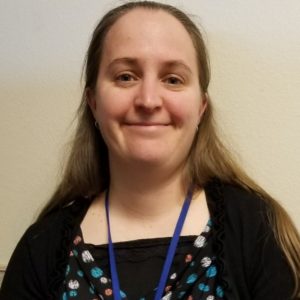
3.5 years
What made you want to become an ombudsman?
I started off my career in aging services as an ombudsman and have recently returned to my roots. Throughout my career I have had the opportunity to work at an adult day care program, Single Entry Point case management, Adult Protection, and Director of the Area Agency on Aging. All of these professions have afforded me the tools to be equipped for the advocacy and mediation required of ombudsman. I really enjoy working with residents of long-term care facilities. I want to help promote the voice of residents and their rights, so they can have the best quality of life.
What surprised you most about being an ombudsman?
For individuals residing outside of facilities we often take for granted on a daily basis our rights afforded to us. Yet residents of facilities have to fight continually to ensure their rights are not violated. There seems to be a societal misconception that residents don’t have rights. Residents don’t give up their rights once they enter a long-term care facility. Not only do they have the same rights, but they are guaranteed additional rights as well.
What do you most enjoy about being an ombudsman?
I enjoy building honest and authentic relationships with residents. I get excited when residents find their voice and feel empowered to speak up for themselves. It is rewarding to see success in my advocacy efforts even if they are small successes.
Tell us 2-3 positive changes you are working to achieve in the communities that you serve.
During the pandemic, I worked to get tablets into facilities to improve ombudsman communication with residents as well as to help reduce social isolation and loneliness.
This past year, I have been working on improving the quantity and quality of our data. It is important to be able to show and tell the great work our ombudsman do in the region at a local, state, and national level.
In the coming year, I will be working on our education and outreach efforts within facilities and local communities. We will be using various media to create an awareness of the long-term care ombudsman program.
Do you have a favorite quote that inspires you in your work as an advocate?
“You might have to fight a battle more than once to win it.” ~Margaret Thatcher
Spotlight Interview Tina Strang Region 12
How long have you been an ombudsman? 3 years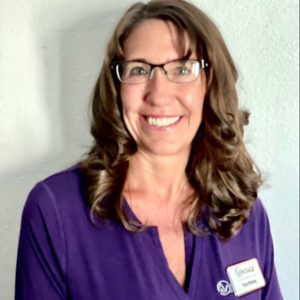
What made you want to become an ombudsman?
I have always wanted to make a difference in whatever career path I was traveling. Before taking this job, I was an administrator for home health, home care, and senior nutrition programs in a rural area. There were lots of opportunities for advocacy during this time as urban hospitals sometimes did not fully understand that individuals living in rural areas encounter many barriers to accessing proper care. That job became more administrative over time with less person-to-person interaction, and I missed interaction. When the opportunity was presented to me to become an ombudsman advocating for residents in long-term care, I realized it was exactly what I wanted to do.
What surprised you most about being an ombudsman?
The thing that surprised me the most was that ombudsmen are not mandatory reporters. After years of mandatory reporting training, I had to learn and understand the philosophy and reasoning behind it. Once I understood that it had to do with the confidentiality of our program, it made perfect sense. The stark reality of the loneliness of those living in facilities without any support system like family or friends has come to light in a whole new way. These individuals truly have no place to turn or anyone to talk to about the things that concern them. They feel they don’t have anyone to assist them with complex issues. That has brought home the importance of the long- term care ombudsman program.
What do you most enjoy about being an ombudsman?
One of the things I enjoy the most about being an ombudsman is that it requires continuous learning and growth; learning to be a better listener; learning how to support, encourage, and empower residents to advocate for themselves as well as learning new and innovative ways to help make their lives better. When I see the smile on a resident’s face on a visit, it is very gratifying. I learned how powerful music could be for people living with dementia and then had my own personal experience with that concept. On one of my visits to a facility, I knelt in front of a resident that I was familiar with and who was sitting silently in the hallway. This resident was in the end stages of dementia, and I began singing, ever so terribly, a song that is familiar to most people, and watched the resident’s face light up at the sound. Then the resident joined in the words of the song with me. This resident had not attempted any verbal communication in months. That was very moving and one of the most incredible experiences of my life.
I also enjoy the part of my job that is educating residents, families, community members, and staff on the residents’ rights and what mechanisms are in place to protect those who call the long-term care community they live in their home.
Tell us 2-3 positive changes you are working to achieve in the communities that you serve.
- I am working to see that effective communication is accomplished within the care communities I serve. Many individuals living with blindness, those who have difficulty hearing, those living with dementia, as well as those who speak another language, other than English, are sometimes left without effective ways to communicate with caregivers or other staff.
- I am working to connect those who need further supports, especially in assisted living, with the community resources they need.
- The COVID-19 pandemic has given me, as an ombudsman, an opportunity to educate our communities on the challenges faced by individuals living within these long-term care communities. It has given me an opportunity to spotlight the systemic changes that need to be made to properly meet the complex needs of residents in these settings.
Do you have a favorite quote that inspires you in your work as an advocate?
A quote that inspires and energizes me in my work is “We can do hard things”: Author unknown
I do have a belief that one person can make a difference. I might not change the world, but I might be able to change one person’s world if I take the time to listen- to truly listen, without preconceived ideas or judgements, and take the opportunity to learn. In so doing I do not just learn about that person; I learn about myself as well.
This is heart work even more than it is head work, and with an open heart much can be accomplished.
Spotlight Interview Amber Franzel Region 2A
How long have you been an ombudsman?
7 years
What made you want to become an ombudsman?
I’ve done a variety of things in my career, from crisis intervention with Adult Protective Services, case management supervision in community mental health, vocational work with individuals with intellectual or developmental disabilities (IDD), agency policy work, and therapy for survivors of domestic violence and sexual assault. I believe all of those skills were positioning me for the ombudsman program, as I’m able to use a lot of those skills in advocating for residents. It is an incredible marriage of skills that works well with advocacy, which is what I really like to do. It’s not that I didn’t like all those other things, it just feels like it fits with my experience, the population I like to work with, and as though it was meant to be.
What surprised you most about being an ombudsman?
What surprised me most was the need for a program like this and how unique it is. There are a lot of services working toward similar goals like risk reduction, culture change, and protection & advocacy; but this program has such a unique focus on resident rights and a resident’s expressed interest. It makes such a difference to a resident’s quality of life to have their voice heard and to be part of their care and planning process. I was surprised I hadn’t heard more about it before. We need so much more of this.
What do you most enjoy about being an ombudsman?
I think seeing a change that happens because of something that I did or was involved in. I think we have a difficult job in having to manage so many different issues and often need to come up with creative solutions which can be challenging. I value those incremental changes, like improving a care plan or having a staff member better understand unmet needs because of education I provided or a referral I made. That is so meaningful. I try to focus on those small successes to maintain a positive attitude and recharge my advocacy efforts.
Tell us 2-3 positive changes you are working to achieve in the communities that you serve.
Before the pandemic, we were working on the CO-PEER program and that has been a big success. It is a program that trains residents how to self-advocate and resolve complaints for themselves. We were able to develop it using information from a program in Pennsylvania that has been running for years. It gave a lot to us, to residents and I think it gave a lot to facilities. They had a big part in the training and it felt more like a team effort as opposed to the just the ombudsmen pointing out areas where the facility/provider needed to make improvements. It involved residents in actively changing their home for the better.
Our team is very proud of the tablet donation project we worked on at the beginning of the pandemic. We secured 165 tablets and were able to get them into every facility and into the hands of residents themselves. While we wanted to reduce social isolation, the tablets also made our jobs as advocates easier. We created some very clear guidelines for providers about how they were to be used, how to clean them and easy tech guides to try to troubleshoot technical issues early. We also asked that Skype be set up and each of our Ombudsman Skype addresses be added to make contact with residents that much simpler. We also made it clear that residents should be able to use the tablets to connect with family and medical providers if they wished. As a result, we were nominated for the “Larimer County Innovation Award”.
I am on the board for an organization called Sound Affects. It is a local non-profit music programming organization which connects local and even well-known musicians with senior care communities to offer live performances while paying the artists the going rate. Typically, artists perform at night so our thought was to pair artists with senior care communities during the day when they are not as busy and would more likely be available for an outdoor or virtual concert. It was an option most musicians had not thought of and it gave them a broader audience. When group activities stopped, we had to be creative, so musicians started doing some online concerts and sending virtual telegrams with music to residents. People in the community could purchase these as gifts and an artist would perform a song for that resident; we had a lot bought as Christmas gifts which was fun. Musicians also performed outdoor concerts for senior care communities which were very well received. Sometimes the facility paid whatever they were able/willing to pay, and the organization would pick up the difference. This is supplemented through donations, grants and fundraising efforts.
Do you have a favorite quote that inspires you in your work as an advocate?
Samantha Power: “All advocacy is, at its core, an exercise in empathy.”
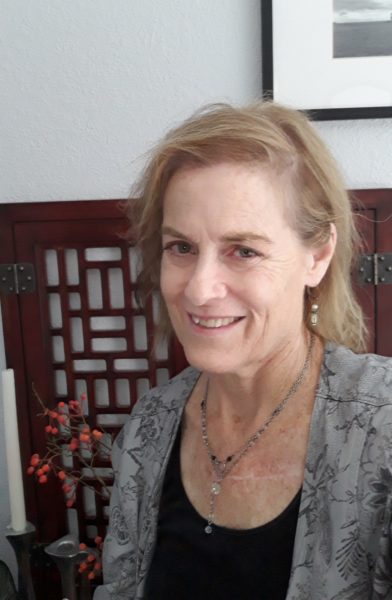 Elizabeth Kelly
Elizabeth Kelly
How many years have you been an ombudsman?
I have been an ombudsman for 8 years.
What made you want to become an ombudsman?
I worked as a Certified Nursing Assistant (CNA) in a nursing home in Denver as a teenager. It was my first experience working with older adults and people living with disabilities. Later, I became a Respiratory Therapist and worked in acute care settings. After obtaining my Social Work degree, I worked as a medical social worker in a hospital setting. So, all those experiences involved working with people who needed medical and psychosocial care. By the time I learned of an opening for a long-term care ombudsman nearby I knew what an ombudsman did, and it was a perfect fit for me. I worked as long-term care ombudsman for Larimer county for about five years. I loved it. I went on to work in other roles serving older adults and people living with disabilities and then, a few years ago, moved to southern Colorado where I am once again working as an ombudsman.
What surprised you most about being an ombudsman?
How much I would miss it. After I left the Larimer County Ombudsman Program, I had occasion to visit people or attend meetings in nursing homes as an attorney or court visitor. Each time I sensed how much I missed working directly with residents as an ombudsman.
What do you most enjoy about being an ombudsman?
Working directly with residents. Whether it is an elder or a younger person living in a care facility, connecting with the resident as a unique human being is very satisfying. Listening to a resident’s lived experience, to the concerns they have now, is the essential first step for an ombudsman. Problem solving, educating, advocating – all are tools we use to stand next to a resident as they direct us in resolving their complaint.
Tell us two to three positive changes you are working to achieve in the communities that you serve.
As a local ombudsman program, we are progressing towards creating a stable, well-staffed program serving Las Animas and Huerfano counties in southern Colorado. This last year we hired another ombudsman and have been training her to prepare for her certification as an ombudsman. An additional ombudsman will help ensure better coverage for our region.
During the pandemic, we used more social media, technology (including tablets donated to area care facilities) and other non-traditional means to reach residents and their families.
We are also planning to do more outreach to develop family councils in the communities we serve. Residents of long-term care facilities are our neighbors and integrating them into the communities in which they live is important to their wellbeing. This would also assist in decreasing the isolation and stigma that sometimes comes with living in a long-term care facility.
Do you have a favorite quote that inspires you in your work as an advocate?
Yes, my Poverty Law professor gave a rousing speech at graduation and exhorted us to, “Be bold! Be bold! Be bold!” in our work with others.
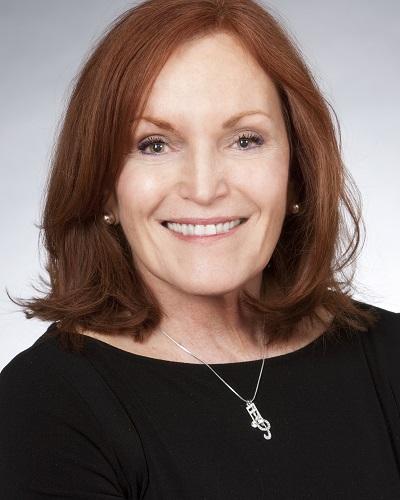 Vinni Ferrara
Vinni Ferrara
How long have you been an ombudsman?
12 years
What made you want to become an ombudsman?
I have taken care of my parents at home and then I was a hospice volunteer for four years. I also exclusively visited nursing homes when I was a hospice volunteer. I saw the need for advocacy and I thought if there was a job I could get hired to do, I would want to do advocacy. I knew the job of the ombudsman would be the job for me and it has been perfect for me. I wanted to help people have a better quality of life.
What has surprised you the most in being an ombudsman?
The complexity of the issues that residents face. What I saw first as a volunteer was residents getting woken up early, dressed, and taken to the dining room. As I worked more, I saw the complexity of resident rights violations and the other issues residents face. The most complex resident rights violation is the resident’s desire to have their choice of food, and I was surprised by that as I learned what complications came up. For example, a resident who wanted bacon, but the staff said the resident has difficulty chewing and swallowing, which can cause a choking hazard. It took a few weeks to resolve the concern and make sure the facility satisfied the resident’s request for a choice of meals. You would not think a food issue would be that complex.
What do you most enjoy about being an ombudsman?
When I was going into facilities, the most gratifying thing would be to resolve a problem for a resident who felt hopeless, and I resolved their concern for them. It was worth everything to see their satisfaction with the resolution on their face. Now that I am working with the Regional Ombudsmen at State LTCOP, I enjoy collaborating and assisting them.
Tell us the top 2 or 3 positive changes that you are working to achieve in the communities that you serve.
Since I have been the Program Manager with State LTCOP, I think we have had better communication between State LTCOP and local ombudsman programs around the state, which is better for residents and ombudsmen.
I also think we have improved the quality of our data, in order to get accurate data for systemic advocacy.
During the pandemic, the importance of supporting LTCOP and strategizing on staying in touch with the residents. We have learned a lot, and it will benefit the program in the future.
Do you have a favorite quote that inspires you in your work as an advocate?
“No voice is too soft when that voice speaks for others.” Janna Cachola is an actress and singer from New Zealand.
![Colorado State Long-Term Care Ombudsman Program [logo]](https://www.coombudsman.org/wp-content/uploads/2021/10/OMB-Logo.png)

